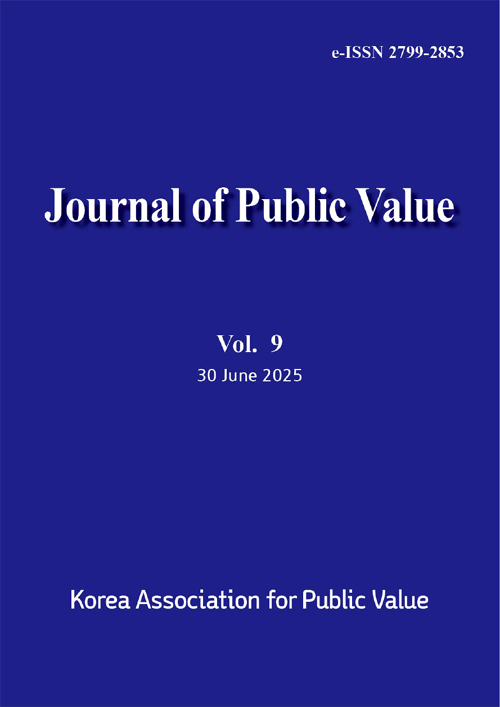학술논문
Remembering our Dead: The Practice of Death Veneration in the Philippines and South Korea
이용수 3
- 영문명
- 발행기관
- 한국공공가치학회
- 저자명
- Marvin Tenecio Raniel Billones
- 간행물 정보
- 『Journal of Public Value』Vol. 9, 121~134쪽, 전체 14쪽
- 주제분류
- 사회과학 > 사회복지학
- 파일형태
- 발행일자
- 2025.06.30
4,480원
구매일시로부터 72시간 이내에 다운로드 가능합니다.
이 학술논문 정보는 (주)교보문고와 각 발행기관 사이에 저작물 이용 계약이 체결된 것으로, 교보문고를 통해 제공되고 있습니다.

국문 초록
Purpose: Ancestor worship is practiced in societies with varying levels of socioeconomic, ideological, and technical complexity, which is nevertheless a fundamental component of many contemporary religious traditions. Using the composition of loob by Alejo, this paper examines the various similarities and differences on how Filipinos and Koreans practice their ancestral traditions by analyzing the parallels between undas and jesa, rites held in the Philippines and South Korea, respectively, as remembrance of departed family members or ancestors. The researchers also explore both cultures' practices/beliefs, considering Animistic, Christian, and Confucian traditions that substantially impact the everyday lives of Korean and Filipino families.
Method: This research project used a qualitative approach consisting of literature review. The results of this study should be supplemented by qualitative studies in the future. The literature review consists of a comprehensive assessment of scholarly academic publications from competing perspectives in the fields of religion, philosophy, and cultural studies, with a focus on Christian and Confucian philosophy on life, death, and the afterlife as well as religious practices related to funeral ceremonies.
Results: The research identifies the similarities and differences between the Philippines and South Korea in terms of death veneration. Social community, food, and family are highly valued in both nations. There might be certain connections between the cultures and histories of Korea and the Philippines, but there may also be a great deal of variations, particularly when it comes to geography, language, religion, food, history, education, and beliefs. Nevertheless, Korea and the Philippines are distinct nations with their own cultures, customs, and history despite their shared similarities and disparities.
Conclusion: This article discusses similarities and differences in how Filipinos and Koreans practice these ancestral rites and investigate the practices/beliefs of both nations that significantly affect the daily lives of Korean and Filipino families. Ancestral worshiping in South Korea is considered enlightenment practice by Confucians with no religious involvement. Mourning and other related ceremonial activities, which were seen to be little more than the manifestation of human emotions and sentiments, fostered the qualities of filial piety, fidelity, and unconditional love while also expressing respect and respect for the person who died. Filipino Christians, on the other hand, believe in the bible. According to their scripture, the dead people's spirits do not stay in the physical realm. However, they either go to God's promise or hell. The idea that spirits linger on earth after death and impact on believer's lives is not supported in such scripture.
영문 초록
목차
1. Introduction
2. Composition of Loob by Alejo
3. Death Veneration Practices
4. Discussion and Results
5. The Influence of Dead Veneration Practices on Korean and Filipino Families' Daily Lives
6. Application of Loob-Kapwa in Korean and Filipino Death Practices
7. The Convergence and Divergence between Undas and Jesa
8. Conclusion
9. References
해당간행물 수록 논문
- Journal of Public Vol. 9 Contents
- Rise of the Rest: It takes Two Tier-Twos to Tango
- Morocco’s African Foreign Policy: The North Africa Hegemon or Cooperation Partner?
- The Public Value of Psychological Capital: Evidence from Skilled Migrant Lecturers in South Korea
- Public Value Crisis in the Information Age: Based on the Image of Consumer Heroes
- Applying Textual Embeddings for Numerical Data Clustering
- Making Good Citizens from the Authoritarian Period to the Reform Era in Indonesia
- Exploring the Potential Expansion of Korean Higher Education for Lifelong Learning in Morocco
- Remembering our Dead: The Practice of Death Veneration in the Philippines and South Korea
- Developing a conceptual framework of ethical leadership in research process for graduate students in Thailand
- The Unexchangeable Value of Humanity in Artificial Intelligence Ethics: Uniqueness of Memory Mechanisms and Physical Identity
- Artificial Intelligence (AI)-based Autonomous Weapons (AWs), its Ethical Task, and its implication to Moroccan Military Innovation
- A Review of Curricular of the Military Academies in the Republic of Korea
- A Comparative Analysis of Embedding Techniques and Clustering Algorithms on Benchmark Datasets
- Ethical Global Citizenship Education for the Common Good
- Developing Character Values of Nationalism and Integrity Through the Work Programs of the Muhammadiyah Autonomous Organization in Indonesia
참고문헌
관련논문
사회과학 > 사회복지학분야 BEST
- 사회복지의 법적 실천에 관한 탐색적 연구
- 한국과 미국의 사회복지 윤리강령 비교연구 : 비밀보장, 이중관계, 문화적 다양성, 결함이 있는 동료를 중심으로
- 청년실업의 원인과 해결방안에 관한 연구
사회과학 > 사회복지학분야 NEW
- 한국가족복지학 제30권 제3호 목차
- 어린이집 교사 대 아동 비율 개선 이후 변화에 대한 보육교직원의 인식
- 특성별 지역아동센터 지원사업 현황 및 개선방안 - FGI 조사를 통한 관계자 의견 탐색
최근 이용한 논문
교보eBook 첫 방문을 환영 합니다!

신규가입 혜택 지급이 완료 되었습니다.
바로 사용 가능한 교보e캐시 1,000원 (유효기간 7일)
지금 바로 교보eBook의 다양한 콘텐츠를 이용해 보세요!



